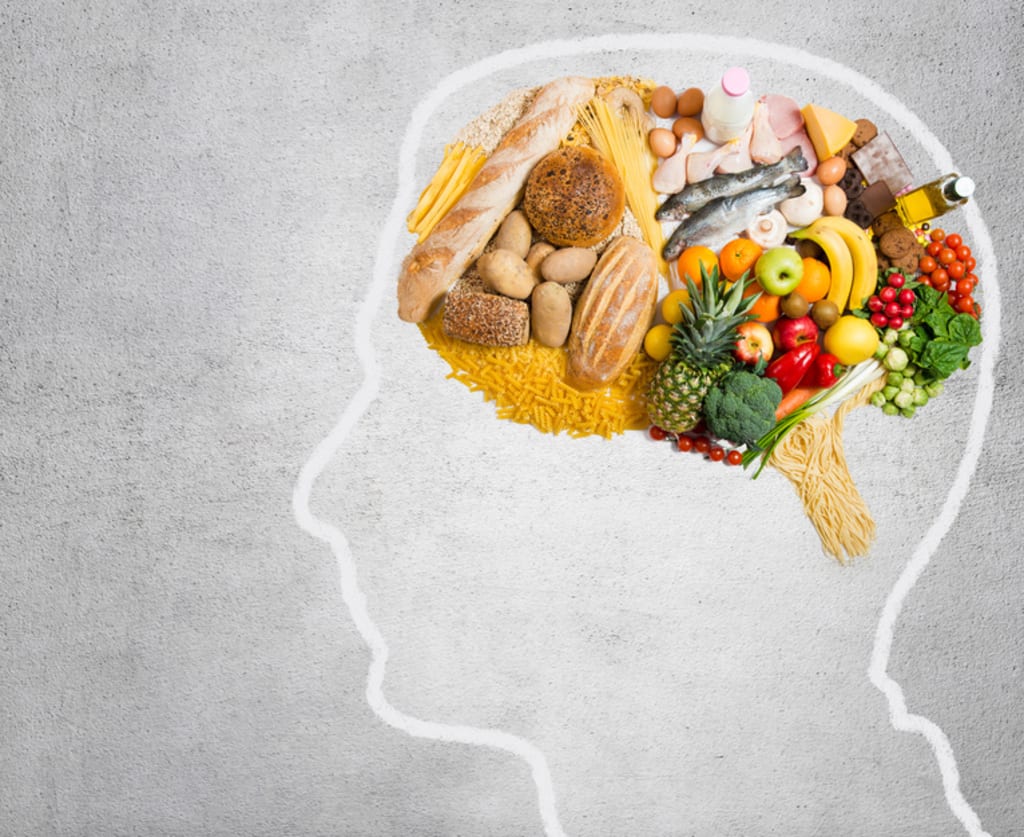The Importance Of Nutrition In The Treatment Of Depression
A healthier diet equals a healthier mind

Depression and an unhealthy diet often go hand in hand.
Depression can cause the affected individual to eat unhealthily - often by skipping meals, eating high volumes of simple carbohydrates and refined sugars, and choosing processed or instant foods, which in most cases are nutritionally poor.
Meanwhile, when a person’s diet becomes unbalanced, they are not receiving the nutrients required to balance their mood and support good cognition.
Here, we will take a look at the ways in which depression may affect diet, how diet can support good mental health, and outline some simple changes that will support optimal mental wellbeing in day-to-day life.
How Depression Affects Diet
Most people experience depression or anxiety at some point in their life. For many, this may be a short-term experience of just a few weeks, known as a depressive episode. But others may experience more prolonged periods of low mood over months or even years.
Depression is typically characterised by persistent low mood, loss of motivation, and self-neglect; all these areas can affect a person’s relationship with their diet.
Low mood is known to affect an individual’s relationship with food, as it can cause an individual to either lose interest in food, or to use it as a coping strategy.
For example, some sugary foods - such as milk chocolate - may cause a temporary sugar ‘high’ and release serotonin and dopamine, which leads to a blood sugar crash later. This can contribute to mood swings and feelings of being sad, anxious, or irritable. Similarly, simple carbohydrates such as white bread also contribute to unstable blood sugar levels.
Loss of motivation and self-neglect also means that often a person with depression will not do what they need to do to look after themselves. Sometimes, a depressed person will suffer from a negative self-image, which can contribute to a lack of motivation to feed themselves adequately.
As a result, they may not put the time into preparing fresh, nutritious meals, and may instead neglect to eat, or resort to instant, high-calorie foods.
However, this poor diet can also contribute to ongoing feelings of depression, and may prolong the experience of low mood.
Food For Thought
Poor diet is a factor that may perpetuate experiences of depression, while adherence to a good diet can help to reduce the intensity of depressive symptoms.
One theory suggests that depression is associated with high levels of inflammation in the brain, and there is a wide evidence base to suggest that adhering to an anti-inflammatory diet which includes high levels of fresh fruits and vegetables, fish, and wholegrains is associated with a decreased risk of depression.
Omega 3, found in fish, also helps to reduce inflammation in the brain, and is especially important for good mood and condition. Diets that are high in magnesium, folic acid, B vitamins 6 and 12, and essential fatty acids have been associated with a lower risk of depression too.
Meanwhile, high levels of red meats, processed foods, unhealthy fats, refined carbohydrates, and refined sugars - combined with low levels of fruits and vegetables - are associated with an increased risk of depression.
Plus, besides being an inflammatory food, sugar is also associated with high cortisol levels, which can contribute to depressive symptoms as cortisol is one of the hormones that drives feelings of stress and irritability.
The lack of energy and motivation caused by a poor diet can also contribute to depressive symptoms and poor mood, while nutritional deficiencies may lead to suboptimal cognitive function.
Alcohol is also known to be a depressant.
This means that while it may initially cause a slight lift in mood, this is followed by the opposite effect, which can leave you feeling worse than before you started drinking. It is for this reason that reducing your alcohol intake will help to improve your mood.
Small Steps, Big Changes
If you, or someone you know, are trying to navigate your way through an episode of poor mental health, there are several small changes you can make to your diet that will lead to a big difference in mood:
- Reduce your sugar intake: If your diet is high in sugar, you can reduce your sugar intake by switching to sweeteners in tea or coffee, or slowly cutting down altogether, switching from biscuits or cakes to nuts or crackers, switching from white/milk chocolate to dark chocolate with a cocoa content of over 80%, and either reducing the number of fizzy drinks you consume, or opting for low sugar or sugar-free options.
- Switch to lean meats: Ideally, you should reduce the amount of red meat that you eat and opt for fish or lean meat instead. The NHS recommends that we eat 2 portions each of oily fish and white meat weekly, and that you should eat no more than 3 portions of red meat per week.
The Department Of Health And Social Care also recommends that if you are eating more than 90g (cooked weight) of red meat daily, you should cut it down to under 70g.
• Cook from home: Home-cooked foods are more likely to be higher in nutrition and lower in additives. If you struggle with energy and motivation, learn some simple, balanced recipes that you can make quickly and with little effort - such as jacket potatoes with hummus and salad, for example.
• Increase the amount of fruits and vegetables in your diet: Many people struggle to eat enough fruits and vegetables due to the high cost of fresh produce. So if you have a tight budget, look for reduced items at the ends of isles, or purchase canned or frozen fruit and vegetables.
About the Creator
Alexander Belsey
B2B magazine editor and digital marketer. I write about business, politics, economics, and wellbeing - sometimes all at once.






Comments
There are no comments for this story
Be the first to respond and start the conversation.